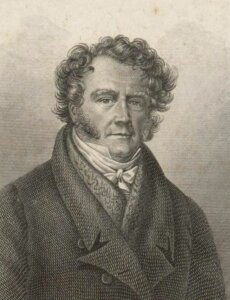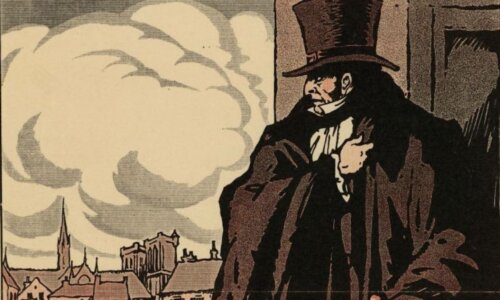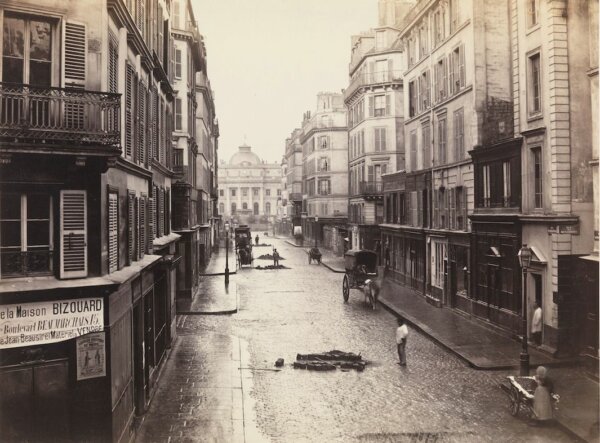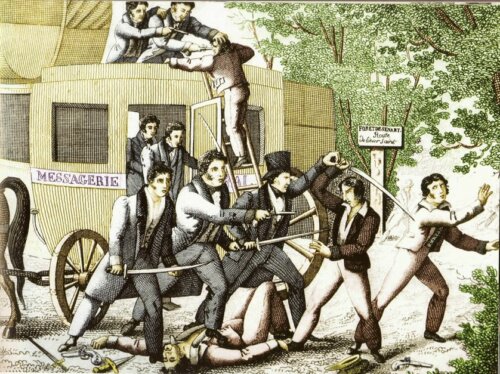Eugène-François Vidocq: Biography of a Fantastic Detective

Vidocq isn’t only famous for being the first real detective in history. In fact, he was the inspiration behind one of the characters of Victor Hugo’s famous novel, Les Miserables. He was also a source of inspiration for Honoré de Balzac and Edgar Allan Poe.
His real name was Eugène-François Vidocq but was better known by his surname of Vidocq. The most interesting part of his story is that he started off in life as a thief. However, he eventually became the founder and first director of the crime-detection Sûreté Nationale in France, commissioned by Napoleon Bonaparte.
Everything we know about Vidocq’s life is thanks to his autobiography. Indeed, in this book, he told the complete story of his life, which was absolutely fascinating. However, the most compelling part of his book didn’t concern his detective work, but his transformation as a human being.

Vidocq the thief
Little is known about his childhood. He was born on July 23rd, 1775, in Arras, France. He had a neighbor, born 16 years before, named Robespierre. It was the same Robespierre who played such an extremely important role during the French Revolution.
Allegedly, a psychic predicted Vidocq’s turbulent life the day he was born. He had six siblings. From a young age, he became interested in gambling and women. His autobiography claims he started stealing at 14 and his parents were his first victims. Apparently, he was following in his older brother’s footsteps.
His father had a bakery and Vidocq stole coins from the cash register. If there wasn’t any money, he’d steal anything he could sell later. He even confessed to stealing and selling his mother’s silverware. On one occasion, he even “kidnapped” himself and collected the ransom.

Prison was a frequent companion
At 15, Vidocq tried to leave for America. However, just before, he became incredibly drunk and someone stole all of his belongings. Later, he worked in the circus as a juggler. Next, he joined the army. While there, a colonel hit and humiliated him but Vidocq hit the colonel even harder, which landed him in prison.
However, he escaped from prison and moved to Paris. During the next ten years of his life, he became a thief, pickpocket, con man, smuggler, and forger. Several times he landed in prison but he always managed to escape. At one point, he fell in love with a count’s daughter and pretended to be a nobleman. When exposed, he tried to escape in a boat but was soon discovered and imprisoned.
He tried working as a merchant but ended up in prison thanks to his illegal dealings. Soon afterward, he tried to become a respected teacher, but went too far with the female students and was banished both from the school and the town.

An amazing turn of events
One of his friends, Cesar Herbeux, was publicly executed for his crimes. This made Vidocq change his life. In fact, in 1809, in exchange for a pardon for his crimes, he became an informant of the French police. He grew so fond of this job that, in 1811, he proposed to his boss the creation of an investigations department. That’s how the Brigade de la Sûrete was born and became the first of its kind in the world.
Vidocq introduced a number of research practices that are still in use today. Among them are ballistic studies, follow-up techniques, fingerprinting, and security seals for documents. Furthermore, he was the first to keep criminal records.
By 1813, crime in Paris had declined by 40 percent. That same year, Napoleon handed over the State’s security affairs to Vidocq. In 1833, he left the police force and founded the first detective agency that we know of. In fact, he made a huge fortune due to his almost 100 percent efficiency rate.
He spent the last years of his life writing novels based on cases he’d dealt with. Occasionally, he worked with the police. Personal friends also asked him for help in solving mysteries. Vidocq died on May 11th, 1857. His life has inspired several movies and books.
Vidocq isn’t only famous for being the first real detective in history. In fact, he was the inspiration behind one of the characters of Victor Hugo’s famous novel, Les Miserables. He was also a source of inspiration for Honoré de Balzac and Edgar Allan Poe.
His real name was Eugène-François Vidocq but was better known by his surname of Vidocq. The most interesting part of his story is that he started off in life as a thief. However, he eventually became the founder and first director of the crime-detection Sûreté Nationale in France, commissioned by Napoleon Bonaparte.
Everything we know about Vidocq’s life is thanks to his autobiography. Indeed, in this book, he told the complete story of his life, which was absolutely fascinating. However, the most compelling part of his book didn’t concern his detective work, but his transformation as a human being.

Vidocq the thief
Little is known about his childhood. He was born on July 23rd, 1775, in Arras, France. He had a neighbor, born 16 years before, named Robespierre. It was the same Robespierre who played such an extremely important role during the French Revolution.
Allegedly, a psychic predicted Vidocq’s turbulent life the day he was born. He had six siblings. From a young age, he became interested in gambling and women. His autobiography claims he started stealing at 14 and his parents were his first victims. Apparently, he was following in his older brother’s footsteps.
His father had a bakery and Vidocq stole coins from the cash register. If there wasn’t any money, he’d steal anything he could sell later. He even confessed to stealing and selling his mother’s silverware. On one occasion, he even “kidnapped” himself and collected the ransom.

Prison was a frequent companion
At 15, Vidocq tried to leave for America. However, just before, he became incredibly drunk and someone stole all of his belongings. Later, he worked in the circus as a juggler. Next, he joined the army. While there, a colonel hit and humiliated him but Vidocq hit the colonel even harder, which landed him in prison.
However, he escaped from prison and moved to Paris. During the next ten years of his life, he became a thief, pickpocket, con man, smuggler, and forger. Several times he landed in prison but he always managed to escape. At one point, he fell in love with a count’s daughter and pretended to be a nobleman. When exposed, he tried to escape in a boat but was soon discovered and imprisoned.
He tried working as a merchant but ended up in prison thanks to his illegal dealings. Soon afterward, he tried to become a respected teacher, but went too far with the female students and was banished both from the school and the town.

An amazing turn of events
One of his friends, Cesar Herbeux, was publicly executed for his crimes. This made Vidocq change his life. In fact, in 1809, in exchange for a pardon for his crimes, he became an informant of the French police. He grew so fond of this job that, in 1811, he proposed to his boss the creation of an investigations department. That’s how the Brigade de la Sûrete was born and became the first of its kind in the world.
Vidocq introduced a number of research practices that are still in use today. Among them are ballistic studies, follow-up techniques, fingerprinting, and security seals for documents. Furthermore, he was the first to keep criminal records.
By 1813, crime in Paris had declined by 40 percent. That same year, Napoleon handed over the State’s security affairs to Vidocq. In 1833, he left the police force and founded the first detective agency that we know of. In fact, he made a huge fortune due to his almost 100 percent efficiency rate.
He spent the last years of his life writing novels based on cases he’d dealt with. Occasionally, he worked with the police. Personal friends also asked him for help in solving mysteries. Vidocq died on May 11th, 1857. His life has inspired several movies and books.
All cited sources were thoroughly reviewed by our team to ensure their quality, reliability, currency, and validity. The bibliography of this article was considered reliable and of academic or scientific accuracy.
Coria, J. (2004). De leyenda: Vidocq, de ladrón a policía: El primer detective privado. Clío: Revista de historia, (35), 66-69.
This text is provided for informational purposes only and does not replace consultation with a professional. If in doubt, consult your specialist.







